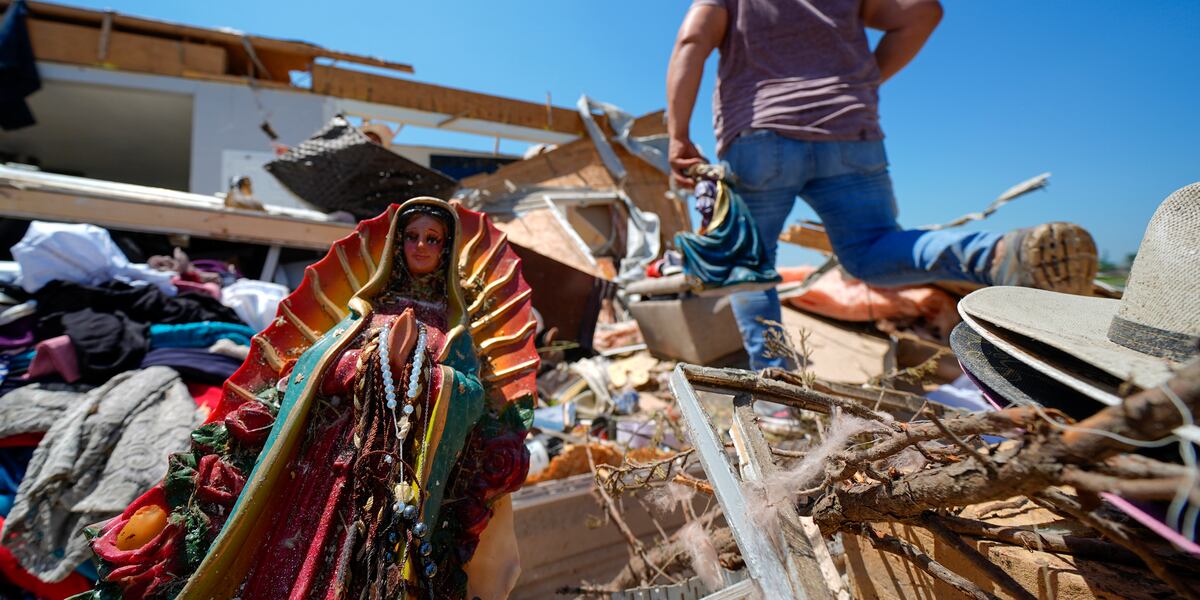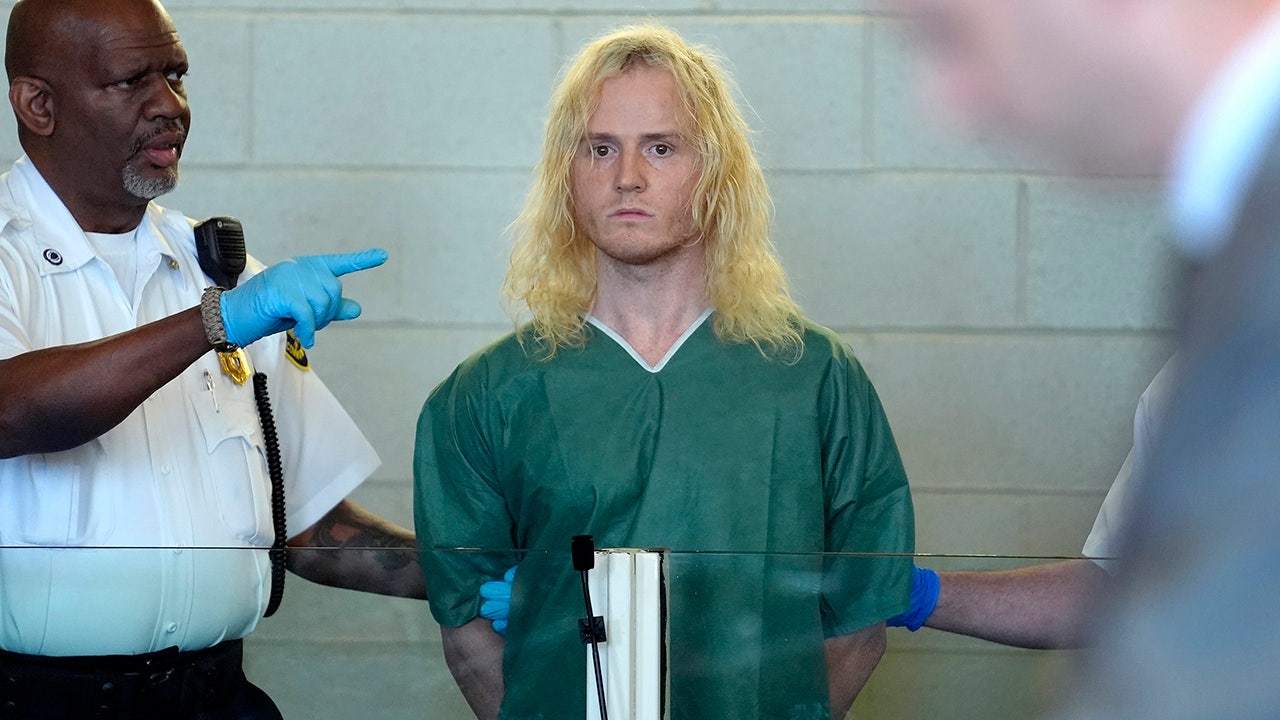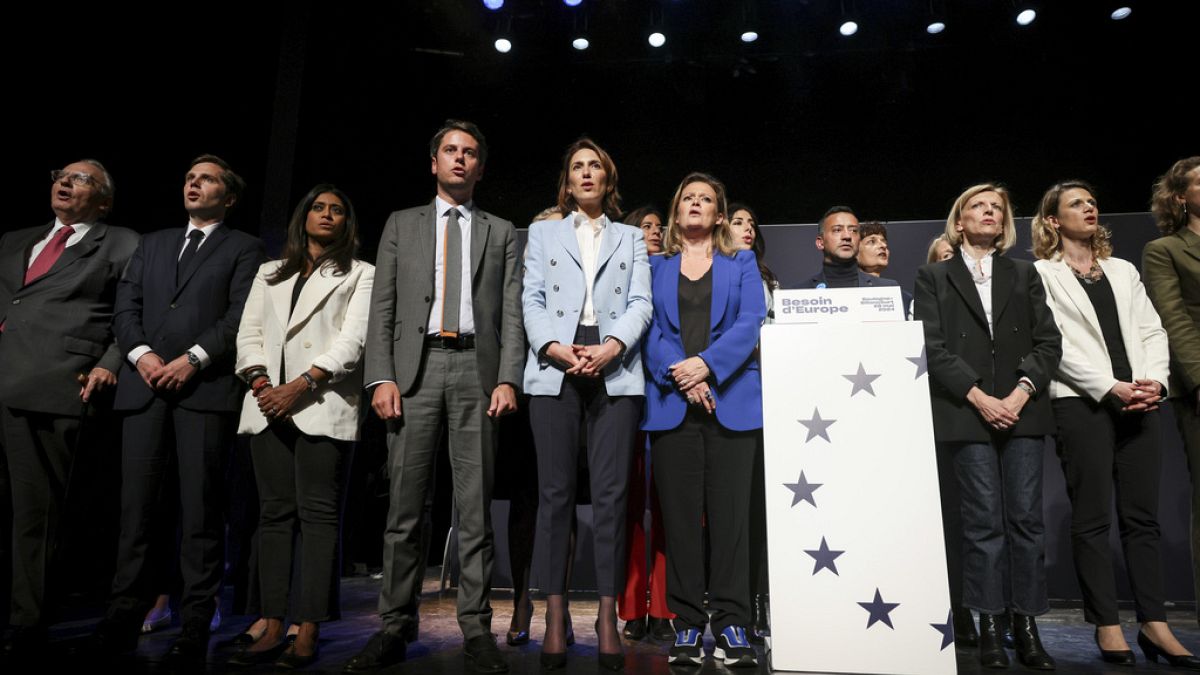Lifestyle
The Eurovision Song Contest kicked off with pop and protests

Baby Lasagna of Croatia performs the song Rim Tim Tagi Dim during the first semi-final at the Eurovision Song Contest in Malmo, Sweden, on Tuesday.
Martin Meissner/AP
hide caption
toggle caption
Martin Meissner/AP

Baby Lasagna of Croatia performs the song Rim Tim Tagi Dim during the first semi-final at the Eurovision Song Contest in Malmo, Sweden, on Tuesday.
Martin Meissner/AP
MALMO, Sweden — Competition in the 68th Eurovision Song Contest kicked off Tuesday in Sweden, with the war in Gaza casting a shadow over the sequin-spangled pop extravaganza.
Performers representing countries across Europe and beyond took the stage in the first of two semifinals in the Swedish city of Malmo. It and a second semifinal on Thursday will winnow a field of 37 nations to 26 who will compete in Saturday’s final against a backdrop of both parties and protests.

Baby Lasagna of Croatia performs the song Rim Tim Tagi Dim during the first semi-final at the Eurovision Song Contest in Malmo, Sweden, on Tuesday.
Martin Meissner/AP
hide caption
toggle caption
Martin Meissner/AP

Baby Lasagna of Croatia performs the song Rim Tim Tagi Dim during the first semi-final at the Eurovision Song Contest in Malmo, Sweden, on Tuesday.
Martin Meissner/AP
Ten of the 15 acts performing Tuesday were voted through to the final by viewers. They include Croatian singer-songwriter Baby Lasagna, whose infectious electro number “Rim Tim Tagi Dim” is the current favorite to win, and Ukrainian duo alyona alyona and Jerry Heil, flying the flag for their war-battered nation with the anthemic “Teresa & Maria.”
Also making the cut were goth-style Irish singer Bambie Thug, 1990s-loving Finnish prankster Windows95man and Portuguese crooner Iolanda. Iceland, Azerbaijan, Poland, Moldova and Australia were eliminated.
Other bookmakers’ favorites who will perform Thursday include nonbinary Swiss singer Nemo, Italian TikTok star Angelina Mango and the Netherlands’ Joost Klein with his playful pop-rap song “Europapa.”

Bambie Thug of Ireland performs the song Doomsday Blue during the first semi-final at the Eurovision Song Contest in Malmo, Sweden, on Tuesday.
Martin Meissner/AP
hide caption
toggle caption
Martin Meissner/AP

Bambie Thug of Ireland performs the song Doomsday Blue during the first semi-final at the Eurovision Song Contest in Malmo, Sweden, on Tuesday.
Martin Meissner/AP
Anti-war demonstrations become the backdrop
Security is tight in the Swedish city, which expects an influx of some 100,000 Eurovision fans, along with tens of thousands of pro-Palestinian protesters. Israel is a Eurovision participant, and demonstrations are planned on Thursday and Saturday against the Israel-Hamas war, which has left almost 35,000 Palestinians dead.
Israel’s government warned its citizens of a “tangible concern” Israelis could be targeted for attack in Malmo during the contest.
Organizers told Israel to change the lyrics of its entry, originally titled “October Rain” in apparent reference to Hamas’ cross-border Oct. 7 attack that killed some 1,200 Israelis and triggered the war. The song was renamed “Hurricane” and Israeli singer Eden Golan was allowed to remain in the contest.
Jean Philip De Tender, deputy director-general of Eurovision organizer the European Broadcasting Union, told Sky News that banning Israel “would have been a political decision, and as such (one) which we cannot take.”
Police from across Sweden have been drafted in for Eurovision week, along with reinforcements from neighboring Denmark and Norway.
Sweden’s official terrorism threat level remains “high,” the second-highest rung on a five-point scale, after a string of public desecrations of the Quran last year sparked angry demonstrations across Muslim countries and threats from militant groups. The desecrations were not related to the music event.
Eurovision’s motto is “United by Music,” but national rifts and political divisions often cloud the contest despite organizers’ efforts to keep politics out.
Flags and signs are banned, apart from participants’ national flags and the rainbow pride flag. That means Palestinian flags will be barred inside the Malmo Arena contest venue.
Some musicians seem determined to make a point. Eric Saade, a former Swedish Eurovision contestant who performed as part of Tuesday’s show, had a keffiyeh, a headscarf associated with the Palestinian cause, tied around his wrist as he sang.
Afterwards, organizers said in a statement that “we regret that Eric Saade chose to compromise the non-political nature of the event.”
Performers are feeling political pressure, with some saying they have been inundated with messages on social media urging them to boycott the event.
“I am being accused, if I don’t boycott Eurovision, of being an accomplice to genocide in Gaza,” Germany’s contestant, Isaak, said in an interview published by broadcaster ZDF. He said he did not agree.
“We are meeting up to make music, and when we start shutting people out categorically, there will be fewer and fewer of us,” he said. “At some point there won’t be an event anymore.”

ISAAK of Germany performs the song Always on the Run during the first semi-final at the Eurovision Song Contest in Malmo, Sweden, on Tuesday.
Martin Meissner/AP
hide caption
toggle caption
Martin Meissner/AP

ISAAK of Germany performs the song Always on the Run during the first semi-final at the Eurovision Song Contest in Malmo, Sweden, on Tuesday.
Martin Meissner/AP
One person who knows how Eurovision unity can collide with bitter reality is singer Manizha Sangin, who represented Russia at the contest in 2021. The country was expelled the following year over its invasion of Ukraine.
Manizha, who performs under her first name, spoke out against the war. As a result, her performances were canceled in Russia and her music banned from public spaces. The singer remains in Russia but has found it all but impossible to work.
“People are afraid to work with me here because they’re afraid to have consequences after, problems after that,” she said.
Despite the difficulties, Manizha has recorded a single, “Candlelight,” which she is releasing on Wednesday as “a message of hope.”
“Music cannot stop war,” she said. But “what music can do is inspire people.”
Manizha thinks Russia will one day return to the Eurovision fold – but not soon.
“Maybe next generation,” she said. “But for now, relationships are too complicated. And then that makes me sad, you know, because that’s why people are not hearing each other. Because we are separated from each other. And the thing, is music should unite.”

Lifestyle
Have You Ever Seen a Corgi Race?

In recent years, social media has boosted the breed’s popularity. “They are just so photogenic,” Dan McLemore, a corgi enthusiast, said during the Summer Corgi Nationals, an event held in Arcadia, Calif. “They are short, stocky, funny-looking, active — and they just always look like they are smiling all the time.”
Lifestyle
Sarah Silverman Says She Changed Her Comedy Style Over Trump

Fail Better with David Duchovny
Sarah Silverman‘s comedy style has changed quite a bit since she first burst onto the scene — and she says there’s a very good reason for it … Donald Trump.
The comedian recently hopped onto David Duchovny‘s ‘Fail Better’ podcast, where she explained how Trump becoming president inspired her to ditch the “arrogant ignorant” persona she became known for when in the 2000s.
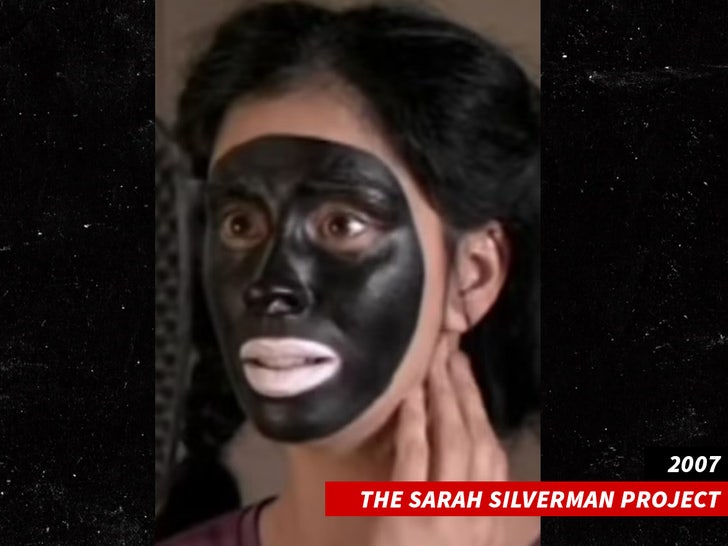
She noted that her first comedy special and subsequent Comedy Central show was all centered on a character/shtick she was putting on … which was an offensive caricature of herself.
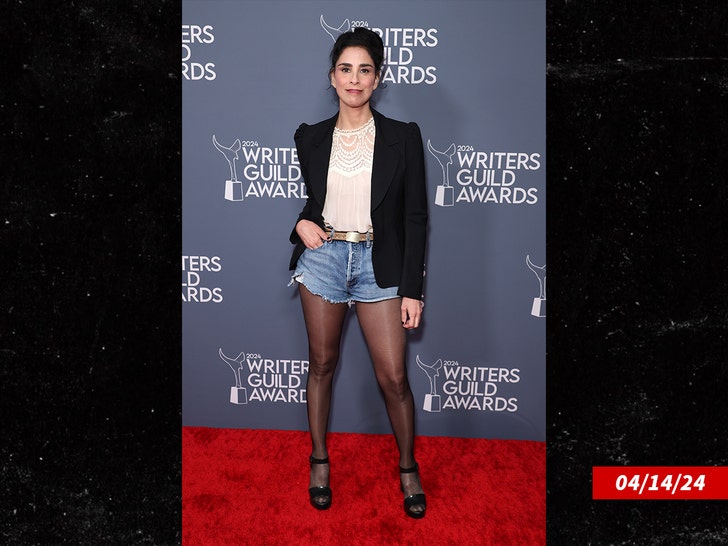
While Sarah acknowledged that her audience stopped responding to her racist material, it was when Trump became the 45th Prez that she realized it was time to retire the whole bit.
As she put it, 45 “embodies [the arrogant ignorant] completely” … and it wasn’t funny anymore.
Sarah says was forced to realize her old material wasn’t holding up in the changing world, adding … “You really have to stay with what is funny to you and that hopefully changes over time because it means you’ve grown, or you’ve changed, or the world has changed and you’ve changed with it, or the world has changed and you haven’t changed with it.”
Sarah has been outspoken about Trump in recent years, using her platform to advocate for causes like the Women’s March and reproductive rights.
Bottom line … she has no interest in perpetuating ignorance for the sake of a laugh anymore.
Lifestyle
From Pop-Tarts to Happy Meals, a food writer recreates American classics with an Asian flavor
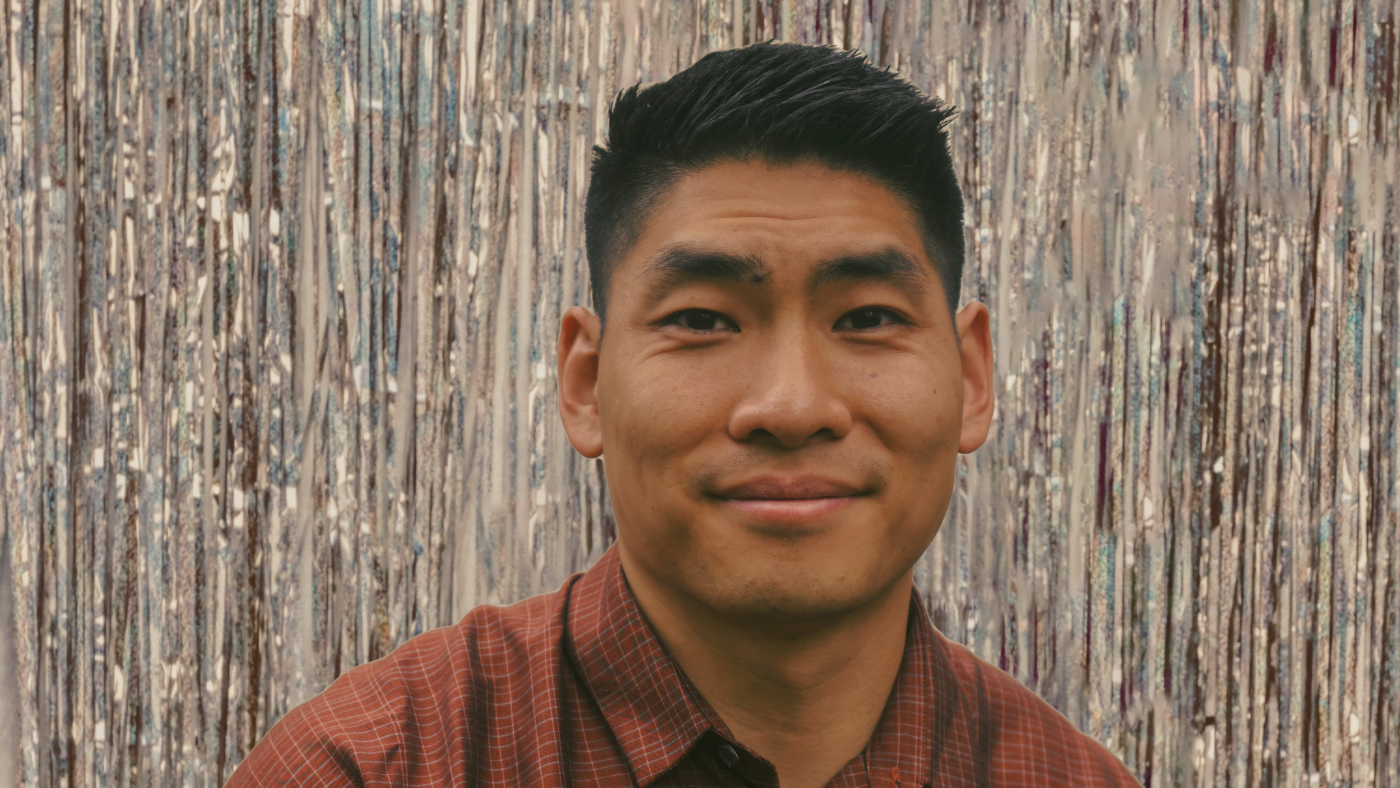
The cooking series is as playful as it is cathartic. Frankie Gaw conjured up fun brand names and designs to go with each meal.
Frankie Gaw
hide caption
toggle caption
Frankie Gaw
Toasted sesame flavored Cheerios. A Pop-Tart topped with strawberry lychee frosting. And a Lunchable that includes a fried pork gua bao, cucumber salad and a Yakult.
Frankie Gaw’s social media page is filled with videos of creations like these — items you won’t usually find at your local American grocery store.
That’s the whole point, says Gaw, a Taiwanese American food creator and author of the cookbook First Generation.
“I asked myself, in an alternate universe, where the world is much more inclusive and embraced all of these diverse flavors, what are the things that Asian Americans would want to see?” he said.
Gaw talked with NPR about how his hit social media cooking series “Turning American classics Asian” came to be, and its origin as a tribute to his family and his Midwest upbringing.
The grocery store seemed stuck in time
The idea sprouted after a trip to his local supermarket. Traversing through the aisles, Gaw noticed that much of the food stocked on the shelves resembled what he saw as a kid 20 years ago. Meanwhile, ingredients like soy sauce and miso were still strictly grouped in “Asian” or “International” aisles.
“Restaurants have been embracing more Asian ingredients, and it feels like grocery stores have remained the same,” Gaw said.

For many immigrants and children of immigrants, food is an intimate part of identity. For Gaw, straddling between the “Asian” aisle and the rest of the grocery store was also symbolic of his upbringing in Cincinnati, Ohio.
Growing up, Gaw felt like he was living a double life. In public, Gaw enjoyed McDonald’s chicken nuggets and fries. At home, he feasted on his grandmother’s beef noodle soup. It took time for him to embrace his dual-taste palette.
Years later in his Seattle apartment, Gaw began experimenting with his childhood favorites. He tinkered with Campbell’s cream of mushroom soup and turned it into congee. He infused mac and cheese with miso. He went as far as designing the packaging for each meal as if he owned a food company.
Gaw shared his concoctions on social media. It took off. His food and his experiences at the grocery store resonated with people, especially other Asian Americans.
“It was a surprise. I didn’t realize how many people had similar experiences as me,” he said.
A love letter to his kid self
“Turning American classics Asian” is not just about Gaw’s appreciation for Asian flavors and ingredients, or a diss to American staples. Instead, it’s Gaw’s way of paying homage to both — and on a larger scale, to the experiences of Asian Americans.
“I have always straddled this sort of in-between space,” he said. “Growing up in the Midwest, I never felt Asian enough. But then, being with my Asian family, I didn’t feel American enough.”

Had matcha flavored Twinkies or strawberry lychee Pop-Tarts been around when Gaw was younger, he thinks it would’ve helped him embrace that in-between experience.
“If I was in a generic American grocery store and then I saw rice cakes, I think that would’ve allowed me to break down the walls of, ‘Oh this only exists within my home,’ ” he said. “And I could’ve existed as my whole self out in the world.”
The project also relates back to his family and growing up in the Midwest
Gaw’s journey into cooking and his first cookbook were motivated by his father, who died in 2014 from lung cancer. Revisiting his father and his paternal grandmother’s old dishes was a way to grieve and keep his father’s memory alive, Gaw said.
In this cooking series, he also reminisces about the time spent with his mother. It’s because of her that Gaw was able to indulge on Lunchables, Twinkies and Pop-Tarts as a kid. She wanted to make sure he would fit in and make friends.
“My mom would stock the entire pantry so that when I go into lunch period, I was like the number one kid in the cafeteria with the best lunch,” he said.
The project also stems from Gaw’s Midwestern roots. In his neighborhood, restaurants were synonymous with fast food and Olive Garden was the place to go on special occasions.
Late nights with his parents at the McDonald’s drive-through were common as a kid, Gaw said, because his parents were often exhausted after long hours at work. “It was a reminder of how much they had to hustle,” he said.
In Gaw’s version of a Happy Meal, he steams buns and marries ground pork with scallions and ginger, topping it off with a chili crunch ketchup.
As he cooks, he thinks about his father, his mother, his grandparents — and the comfort that these dishes would’ve brought them as they were adjusting to life in America.
“I think they always felt like they were on the outside breaking in,” he said. “To see their food at a fast food institution, I think it would’ve made them feel like they have a seat at the table.”
-

 Movie Reviews1 week ago
Movie Reviews1 week ago‘The Substance’ Review: An Excellent Demi Moore Helps Sustain Coralie Fargeat’s Stylish but Redundant Body Horror
-

 Culture1 week ago
Culture1 week agoFrom Dairy Daddies to Trash Pandas: How branding creates fans for lower-league baseball teams
-

 News1 week ago
News1 week agoRed Lobster files for bankruptcy after missteps including all-you-can-eat shrimp
-

 World1 week ago
World1 week agoPanic in Bishkek: Why were Pakistani students attacked in Kyrgyzstan?
-

 News1 week ago
News1 week agoThe states where abortion is on the ballot in November : Consider This from NPR
-

 Politics1 week ago
Politics1 week agoMichael Cohen swore he had nothing derogatory on Trump, his ex-lawyer says – another lie – as testimony ends
-

 News1 week ago
News1 week agoCity of Kyle falls short of ‘Kyle’ world record
-

 Politics1 week ago
Politics1 week agoAnti-Israel agitators interrupt Blinken Senate testimony, hauled out by Capitol police


